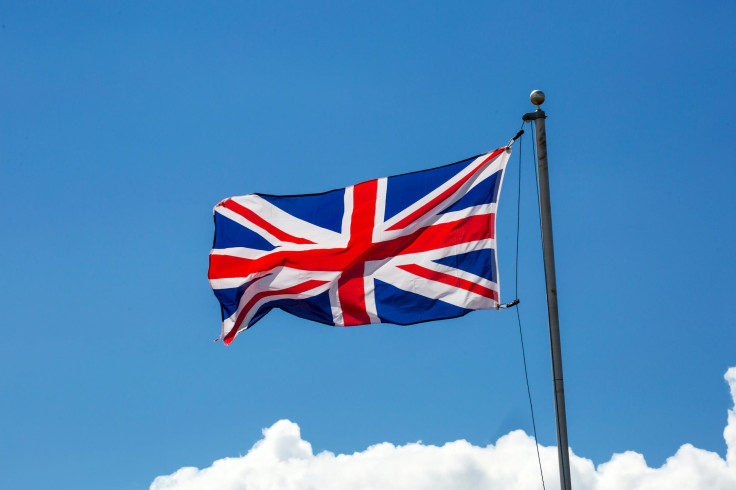Is Early Transatlantic Collaboration the Key to Global Product Success?
Despite the UK's position as Europe's leading startup hub, only 2% of UK startups make it

The UK stands tall as Europe's leading startup hub, raising $17.3B in 2025 till date—more than the next three leaders France, Germany, and Switzerland combined. Yet behind this headline lies a sobering reality: only 2% of UK startups now graduate from Seed to Series A, down sharply from 12.5% in 2020.
This isn't just a funding gap, it's a structural bottleneck. Recent research by ScaleWise points to deeper issues—thin product-market focus, over-reliance on single customers, and underpowered scaling strategies. These aren't isolated problems; together, they form the choke point that keeps promising products from breaking through.
Understanding these gaps is the first step toward fixing them, and the signals tell a clear story about why the Series A bottleneck persists.
The Structural Challenges Behind the Series A Bottleneck
According to the scalewise research, economic conditions and insufficient funding are their biggest challenges early-stage companies face although the deeper signal points towards operational challenges: compared with US peers, UK teams are spread too thin across segments and less focussed on refining product–market fit. Eighteen percent of early-stage companies are highly dependent on a single large customer, which can masquerade as PMF (Product Market Fit) while masking weak repeatability. Hiring patterns also tell a story: Only 12.5% of UK start-ups report hiring challenges vs. 30.2% in the US, suggesting UK firms may not be scaling teams (Sales, Customer Success, Revenue Operations) aggressively enough to catalyse growth.
These signals point to a simple truth: UK start-ups aren't just battling macro-economic conditions; they're navigating structural gaps in focus and scale. Closing those gaps often requires more than capital; it demands access to markets, standards, and customers that pressure-test products early. That's where transatlantic collaboration becomes a game-changer.
Why US Momentum Shapes Global Scale
US capital into Europe grows dramatically according to the stage of investment: about 13% at early stage ($0–15M), 26% at breakout ($15–100M), and 41% at scale-up (€100M+).A clear signal that later-stage momentum is US-centric. The US also dominates AI investment, capturing 56% of global AI VC compared to 25% for Europe, at a time when AI's share of all VC has surged to nearly 43%.
Beyond capital, the US offers sector-specific hubs: Silicon Valley for tech innovation and deep tech, New York for fintech and enterprise SaaS, Austin for cloud and cybersecurity, Boston for life sciences and robotics, and rising centers like Miami, Denver, and Raleigh.
These ecosystems combine world-class accelerators and enterprise buyers with exacting standards in security, compliance and procurement that force clarity in product roadmaps and harden features for scale. When UK R&D engines pair with US design partners and diverse customers, time-to-enterprise adoption drops and customer renewal quality rises.
For founders building the next generation of products, this density of capital, customers, and specialised talent accelerates learning and sharpens product-market fit. To operate on this advantage, founders need a clear framework. That's where the Transatlantic Operating Model comes in.
Turning Collaboration into a System
To make transatlantic collaboration a true advantage, founders need structure - not just intent. That's where the Transatlantic Operating Model (TOM) comes in. It rests on four pillars:
- Product: Pair UK's research expertise with US enterprise rigor—SOC 2 (System and Organisation Controls 2), HIPAA (Health Insurance Portability and Accountability Act)-aligned controls, and integrations like SSO (Single Sign-On), SCIM (System for Cross-domain Identity Management), and SIEMs (Security Information and Event Management systems). Shared computing resources, datasets, and sandboxes let teams co-develop features with real-world telemetry.
- Capital: Combine UK grants, R&D credits and angel funding with US growth capital, sequenced by milestones such as security readiness and lighthouse logos.
- Talent: Build cross-border pods—R&D in the UK, PMM (Product Marketing Manager) and enterprise sales in the US—supported by secondments and fractional GTM (Go-To-Market) leadership to compress learning cycles.
- Governance: Lock down IP (Intellectual Property) ownership, transfer pricing, data residency, export controls, and multi-entity revenue recognition early to avoid costly rework.
Policy tailwinds make this easier. The UK–US Technology Prosperity Deal (Sept 2025) unlocks shared compute and datasets for AI (Artificial Intelligence) R&D, joint programs for ambitious roadmaps, standards workstreams to de-risk US adoption, talent exchanges for leadership pipelines, and clearer trade pathways to accelerate pilots. This isn't policy theatre; it's a practical playbook to reduce friction and boost credibility.
When founders combine TOM with these tailwinds, they don't just scale—they compound. And that's the real story of global product success.
Build Bridges, Not Runways
Staying UK-first can work—but only if your product meets U.S. standards and you build channels through collaboration. Advisory boards, design partners, and co-sell routes can give you U.S.-grade signals long before you commit to a costly footprint. The real mistake is waiting for perfect product-market fit in a small pond. The smarter move? Start collaborating into the scale market that will ultimately decide your product's fate.
The UK is where many great products are born; the US is where they're stress-tested at scale. In a market where only 2% progress from Seed to Series A, the winners won't be those who merely raise more—they'll be those who collaborate better. Build a bridge, not a runway, and your product won't just cross the Atlantic; it will compound advantage on both sides.

Managing Partner, Frazier & Deeter UK
About Frazier & Deeter UK
Frazier & Deeter UK (FD UK) is a leading transatlantic tax and business advisory firm, uniquely operating as a single, integrated entity across the UK and US. Since 2021, FD UK has supported over 400 venture-backed startups and scaleups—primarily in the tech and life sciences sectors—with their US expansion journeys. Our agile, entrepreneurial team, drawn from Big 4 and Top 10 firms, delivers tailored, fixed-fee solutions across the entire business lifecycle. With billions raised by our clients, FD UK empowers innovators to scale confidently and successfully across borders.
© Copyright IBTimes 2025. All rights reserved.




















